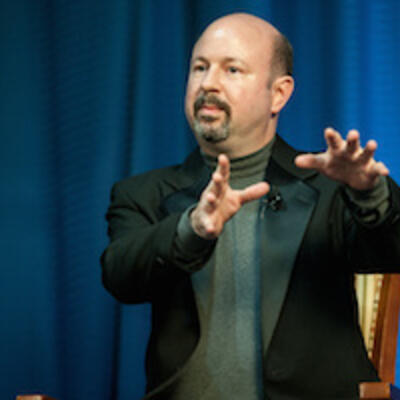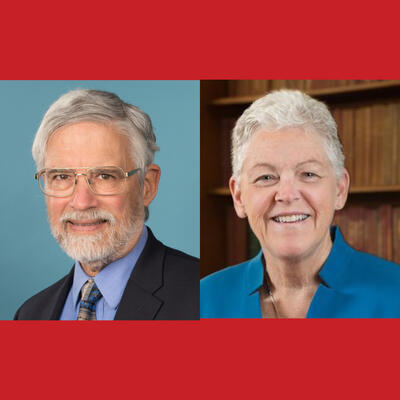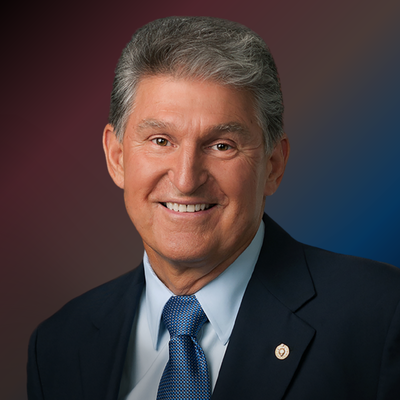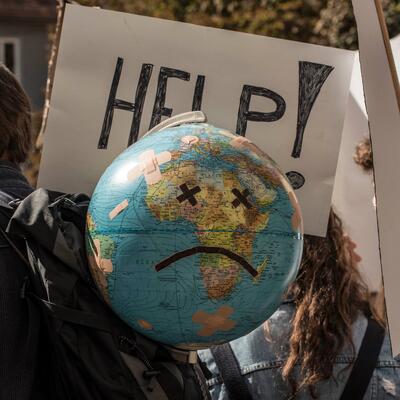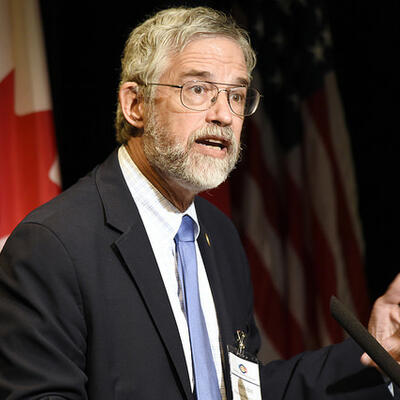
Changing Minds: Climate Politics and Science
Guests
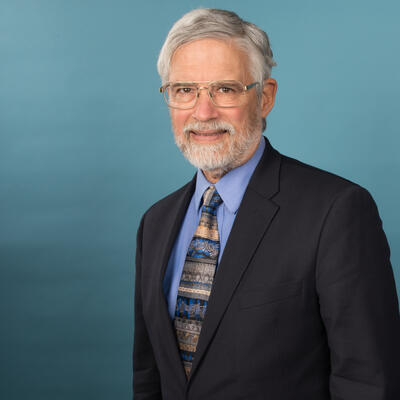
John Holdren
Summary
Donald Trump once advocated for climate action. Now, he’s moving Barack Obama’s efforts in the opposite direction. Obama’s former science advisor, John Holdren, talks about the damage being done by today’s White House.
For twenty years, Jerry Taylor ran the energy and climate programs for conservative organizations funded by the Koch brothers, before coming around on climate change. He recounts his journey, going from a climate denier to a climate mainstreamer.
On this episode of Climate One, Holdren and Taylor join Greg to talk about climate science and politics.
John Holdren, Former science advisor to President Obama; Professor of Environmental Policy at the Kennedy School of Government
Jerry Taylor, President and Founder, Niskanen Center
This program was recorded at the Commonwealth Club in San Francisco, CA in December, 2017.
Photo courtesy: U.S. Navy photo by John F. Williams/Released
Full Transcript
Greg Dalton: This is Climate One, changing the conversation about America’s energy, economy and the environment. I’m Greg Dalton. For twenty years Jerry Taylor ran the energy and climate programs for conservative organizations funded by the Koch brothers.
Jerry Taylor: There's a long line of wolf crying that as a conservative caused me to downgrade a lot of what I was hearing out of the environmental community.
Greg Dalton: But now Taylor has gone from climate denier to climate mainstreamer.
Jerry Taylor: These things could all happen in our lifetimes or our children's lifetimes, but maybe they won't. But the fact is they are scenarios that are quite plausible.
Greg Dalton: Donald Trump once advocated for climate action. Now, he’s rolling back Barack Obama’s efforts in that direction, says former White House science advisor John Holdren.
John Holdren: Not just the ones about climate change, but initiatives around water pollution around air pollution about land and ecosystem preservation. It's terrible.
Greg Dalton: A climate convert and President Obama’s carbon legacy. Up next on Climate One.
Announcer: I’m Greg Dalton and I host Climate One conversations – with oil companies and environmentalists, Republicans and Democrats.
The stimulus act passed early in Barack Obama’s presidency included $40 billion to move the country to cleaner and more efficient energy. He also increased auto mileage standards for the first time in decades but failed to get Congress to pass a bill putting a price on carbon pollution.
As Obama’s White House science advisor for both terms, John Holdren was a key provider of facts and data for the professor turned president. In our recent conversation, Holdren looks back at Obama’s record and weighs in on what’s happening now.
John Holdren: Well I think the biggest damage that the Trump administration is doing is first of all reducing or proposing to reduce very drastically investments in clean and efficient energy research and development by the government. In this country for a very long time we’ve had a symbiosis between government investments in basic and early-stage applied research and the private sector picking up the best ideas and taking them to scale. Couple of colleagues of mine recently wrote an op-ed in the Wall Street Journal called the Miracle Machine. And the Miracle Machine is this symbiosis which has over the last 70 years been the principal driver of economic growth. It's been the principal improver of lifespan, extender of lifespan. It's been a huge contribution to improving quality of life. And the Trump administration basically wants to cut off this Miracle Machine at the knees. And the proposition is the government doesn't need to fund R&D, private sector will do everything that’s required. We know for very fundamental reasons that’s not true. The private sector will never do the amount of fundamental research that society’s interests require because you cannot tell in advance the nature of fundamental research. You cannot tell in advance which research is going to lead to a breakthrough that’s going to improve quality of life. The companies can't tell whether there'll ever be any return. How far away the economic return might be, they can't tell whether the results will be appropriable that is that the company that invest the money will get the economic benefit 20 or 30 years down the road.
And so they just don't do it and they won't do it. They can't defend it to their stockholders. And again what we’ve relied on is the government to do that high risk long return high uncertainty stuff, which as a portfolio we know looking back historically has had enormous benefits, even though you couldn't predict at the time the research was funded what it would do.
So the Trump administration has proposed to cut U.S. federal investments in energy research and development by 50% in the space of a year. At the end of the Obama administration, Obama led a 20-nation coalition called “Mission Innovation” where these 20 governments the biggest funders of government energy R&D in the world committed themselves to double their investments in clean energy R&D over five years and now Trump wants to cut it in half in one year. This will be if Congress accepts this which we must very much hope Congress does not.
Greg Dalton: And this sort of thing is had lot of bipartisan support in the past.
John Holdren: Yes. It has had a lot of bipartisan support. And one of the relatively few things we got done with the Congress in the Obama administration was boosting research and development in clean and efficient energy. And now the Trump administration wants to reverse that even though it has had bipartisan support.
The second big thing that is very damaging is in connection with the withdrawal from the Paris Accord which President Trump announced. There are couples of things that have happened immediately. We can't officially withdraw until ironically enough, the day after Election Day in 2020. But Trump has already cut off U.S. support for climate change mitigation and adaptation in developing countries to which we were committed as part of the bargain in the Paris Accord. The proposition is that the bulk of the accumulation of climate altering greenhouse gases in the atmosphere has been caused by the industrial nations and the developing countries are nonetheless the most at risk because they have the least infrastructure the least capacity to adapt and to absorb the impacts of climate change. And so the bargain was that the industrialized countries would contribute increasingly to the costs of climate change mitigation and adaptation in the developing countries reaching $100 billion a year by 2020 and maintaining that level at least until 2025. Trump has already cut off the early U.S. contributions to that rising collective contribution to helping developing countries in need to address climate change that is devastating. And along with it, Trump has sacrificed U.S. leadership in this space.
In November 2014 President Obama and President Xi of China stood up together in Beijing and said we’re the two biggest economies, we’re the two biggest emitters. We recognize climate change as one of the surpassing challenges of the 21st century. Our two countries are ready to lead together in addressing this problem. That joint statement that condominium on climate policy between the United States and China certified those two countries, our country and China as the global leaders of a sensible effective response to global climate change. It made the Paris Accord possible. Without Obama and Xi standing up and saying that we would never have had Indonesia or Brazil, India, Mexico coming along and joining in what became 195-nation set of commitments to seriously address climate change.
We’ve sacrificed that. We've now left China standing alone as a global leader on climate change. You have to ask yourself, is that a great idea? China is positioning itself to lead in all kinds of domains globally. We backed out of the Trans-Pacific Partnership economically and sacrificed our leadership in that domain. By cutting back our research and development we’re sacrificing our leadership in clean energy innovation and ultimately will damage our economy because there is a $25 or $30 trillion market in clean energy over the next 20 or 25 years worldwide. And who's going to get that market? Not us if we cut the bottom out of the public, private, academic symbiosis, which is driven so much of our progress for the last 70 years.
Greg Dalton: Climate is often thought to be kind of a downer, you know, doom and gloom. What are some of the real technological bright spots you see? We hear a lot about battery prices, electric, autonomous cars. What do you see is the most exciting energy innovation?
John Holdren: Well there really are a lot of them. You've already mentioned batteries there have been huge improvement in battery technology. People have been struggling to improve batteries for many decades, but it's only in the last 10 years or so that really dramatic progress has been made. And that's partly due to advances in nanotechnology which enable us to manipulate the properties of the materials that go into batteries in ways that we could never do before. We've made enormous progress in photovoltaic cells and solar electricity generation. We’ve made enormous progress in the efficiency of wind turbines and the reduction. In the cost of wind turbines in the eight years that President Obama was in office the United States increased by 4 1/2 full to the amount of electricity it gets from the wind and an increase by more than 40 fold the amount of electricity it gets from photovoltaics from solar energy.
And that's going to continue. It’s already true now in some parts of the world, in some parts of this country that wind and photovoltaics are economically competitive with coal soon they’ll be economically competitive with natural gas. This is transformative and enormous change. We’ve made enormous progress in energy efficiency. We can make new buildings not just zero energy buildings. We can make new buildings that export more energy to the grid than they have to import. The Woods Hole Research Center, which I directed from 2005 to 2008, has a building that does that. That is exporter of electricity to society. We can do that across society. We have drastically increased our ability to improve the efficiency of vehicles, electric vehicles are one way but even the internal combustion engine has become much more efficient.
Something that most people don't know is that jet aircraft airliners have become vastly more efficient over the last 30 years. The energy use per seat mile is a small fraction of what it used to be and the potential for doing better continues. The potential for doing better in industry and manufacturing in terms of how much energy it takes to make the products that we use is enormous and we will continue to harvest that potential as probably the cheapest, fastest, safest, surest new energy supply. A kilowatt hour we save is just as much good elsewhere in the economy as a new kilowatt hour we generate. A gallon of fuel we save just as much good elsewhere in the economy. Another area where there are enormous advances being made, I think, is in the domain of advanced biofuels. I'm not talking about ethanol from corn, which is only marginally beneficial at best.
Greg Dalton: Those have been kind of disappointing. Five years ago they were gonna be exciting and then they kind of fading.
John Holdren: Well they are coming back. And again they’re coming back in part with the help of genomics of genetic engineering. I believe we’re gonna have algae that basically make diesel fuel and kerosene directly. And it's a good thing because we’re never going to run Boeing 747s on electricity. You know there are aspects of our transport sector, particularly that are not gonna be able to use electricity, that are not gonna be able to benefit from advances in batteries. Probably not even from advances in fuel cells. We may ultimately have hydrogen powered aircraft where we get the hydrogen from clean and renewable processes, but right now we make hydrogen from natural gas and the CO2 goes into the atmosphere so that's not such a great thing. But in the future, we will make hydrogen more efficiently. But the approach is to get clean biofuels efficiently and without competing with food and forestry which is very important. Those approaches are coming along and I think they're going to succeed and it’s gonna be very exciting.
The other thing that's going to be important, I believe, is learning to capture and sequester carbon dioxide from power plants that do continue to burn coal or natural gas affordably and practically. That is extremely important because whatever else happens, there’s still gonna be a lot of fossil fuel burned in electricity generation around the world. And even if the United States can reasonably rapidly unhook itself from fossil fuels and electricity generation and we still have a long way to go in that domain, China and India both sitting on a lot of coal are going to burn a lot of it. We have to figure out working with them how to burn that coal without the carbon dioxide going into the atmosphere. We know how to do that today, but it's too expensive. I think there are very exciting advances in sight, which will make that technology affordable.
Greg Dalton: You’ve said that where property prices are low, pollution is high. And the people who are near those coal plants you're talking about are often people of color and lower income. So how can this transition help those people who’ve been most directly affected by fossil fuel?
John Holdren: That’s a great question. It is absolutely true that poor people, whether in the United States or elsewhere in the world are the ones most directly impacted by the emissions from fossil fuels. And the technologies that reduce those emissions are going to benefit poor people very substantially. You know, today Delhi has surpassed Beijing as the most polluted major city in the world. Both of them are absolutely horrible in terms of the air pollution. And the very serious impacts on health literally millions of people per year now in the world dying because of air pollution. And a very high fraction of them people who are economically disadvantaged; that’s going to change. I mean one of the reasons that China, of course, is on board on climate change is not only that China has recognized the impacts of climate change on China. But they know that the same technologies that we need to use to reduce emissions of greenhouse gases will also reduce the emissions that are killing their population with particulate matter and oxides of sulfur and oxides of nitrogen and so on. And so you get a win-win when you reduce that pollution.
But I think it's again unjust, irresponsible and ultimately self-defeating to say let the poor solve their own problems let India and China and Indonesia and Brazil and Mexico pay for everything that's needed to reduce their emissions, never mind to adapt to the changes in climate, we can no longer avoid, say well that’s their problem.
It's our problem too as a matter of moral and ethical responsibility but also as a matter of self-interest. As I said before, what goes into the atmosphere once it's there becomes a global problem. We are being disadvantaged by the emissions in China and India. Today, China is by far the world's largest emitter of carbon dioxide. United States is second but India is third and gaining rapidly. It is in our interest even if we didn't care about the health of those populations and the impacts of climate change in those countries and only cared about our own, it would still be in our interest to work with them, to collaborate with them, to help fund their approaches to reducing their emissions.
Announcer: You’re listening to a Climate One conversation with President Obama’s White House Science Advisor John Holdren. You can subscribe to our podcast at our website: climate one dot org. We’ll continue in just a moment.
Announcer: I’m Greg Dalton talking about President Obama’s and President Trump’s views on how to power the U.S. economy. My guest is John Holdren, White House Science Advisor under Obama.
Greg Dalton: The climate conversation started literally in outer space and it’s a lot about chemistry and physics in the atmosphere, a lot about those sciences. And one of the interesting things to me over 10 years doing interviews on this has been to see that the shift toward behavioral sciences, to people talking about human cognition and sociology and psychology. Why we are not responding to these flashing red lights that the planet is telling us we’re going too far. So when you were in the White House how much time did you spend on behavioral sciences understanding how the human brain is processing these threats that scientists are screaming about?
John Holdren: I love that question because one of the first things we did in the Obama administration in the framework of the U.S. Global Change Research Program, which is a $2.7 billion a year program, 13 government agencies addressing global change, is added a big human dimensions component and brought in really for the first time social scientists, behavioral scientists, behavioral psychologists to start to understand why people do what they do what they respond to in the way of signals what they respond to in the way of messages.
We had a brilliant individual as the head of the Office of Management and Budget, Office of Information and Regulatory Affairs, OIRA. Cass Sunstein, one of our country's leading public intellectuals who is a lawyer by training, but who became very interested in behavioral science wrote a book called “Nudge” about how differences in the way you message traces the way you message opportunities have dramatic effects on what people do. And you can without coercion get people to do things that are in their self-interest by changing the way you message things.
We have thought a lot about that. We’ve thought a lot in the Obama administration about messaging. We worked a lot with the private sector. Because clearly the point that American business will benefit from sensible strategies to address climate change rather than being hurt by sensible strategy, this is a very powerful message. It didn't work with Donald Trump when Trump was considering what to do about Paris more than 600 CEOs of major American corporations wrote to President Trump and said please stay in the Paris agreement it will be good for American business. He chose to ignore that, but that's an important message and it's a message that still has some considerable resonance in the congress.
And I think that's very important because again everybody knows the economy is important people react to messages that say this is not a bad thing economically to take sensible action about climate change it’s a good thing economically. The message that says yes there are some costs in the short run to addressing climate change in an adequate way and in a practical way, but those costs are much lower than the damages that will ensue if we don't address climate change in a sensible way. And basically making that economic argument, not just saying the sky is falling, but that millions of jobs will be created holding it up is very powerful.
Greg Dalton: How is climate a human and personal health issue?
John Holdren: In many different ways. One of the things that many people don't understand actually is climate change makes smog worse. So you have this immediate impact that in a warmer climate you have more severe smog episodes and you have more illnesses and deaths from conventional air pollution, you have this connection between climate change and conventional air pollution. Another aspect in which it’s a health hazard is that we are expanding the geographic range of tropical pathogens and vectors of malaria, of dengue fever.
Greg Dalton: Zika, Nile virus.
John Holdren: Zika. And so we are exposing populations that previously have no exposure to these pathogens and these vectors to these new diseases. Asthma is getting worse. Pollen seasons are getting longer and so we’re having more asthma attacks and we're harming the health of more of our children who are particularly susceptible to asthma attacks through climate change. And this is without talking about the extreme weather events that go along with climate change, where, for example, flooding leads in many circumstances to outbreaks of cholera it leads to overflowing sewage facilities. It leads to breeding grounds for mosquitoes.
And there's absolutely no question by the way, no scientific question that climate change is causing an increase in the power, the most powerful storms the intensity the most extreme downpours the frequency and magnitude of flooding. In fact, this is one of the most elementary connections between climate change and extreme weather. The fact is that a warmer atmosphere can hold more water. This is just fundamental physics. And if it can hold more water, more can come down at one time and that is what we’re seeing. And of course it's amplified by changes in atmospheric circulation patterns that create blocking patterns that keep powerful storms like the one that recently hit Houston in place for a long time. So that even more water comes down in one place and you see this incredible phenomenon where you get 4 feet of rain in the space of a few days. And of course Houston is still suffering from that and part of that suffering is disease and death from flooding.
Greg Dalton: This is very dark and there’s something called pre-traumatic stress disorder which is been ascribed to some scientist like yourself who often look at these numbers that are very scary about things that could happen in the future. They’re traumatized by the things that are yet to happen, rather than things that happened in the past. Do you ever have moments where you get a lump in your stomach and say this is really scary I'm not sure we’re gonna be able to turn this around?
John Holdren: I do. It is scary and I'm not sure we’re gonna be able to turn it around. I don't have a clear crystal ball, but I end all of my talks on what we can do on a discussion of the options we have as a society to address this successfully. You know, some of the people I mentioned earlier that there are many dimensions of contrarianism, you know, one is to say it’s not happening another is to say it's happening but people are causing it. Another is to say yes it’s happening and people are causing it, but it won't amount to much.
And another is saying people are causing it, it’s happening, it'll amount to a lot, but it's too late to do anything about it.
And my argument is that all of those forms of contrarianism are wrong. It is not too late to do anything about it. When some of the contrarian say well there's too much uncertainty about the future of climate change to justify big investments. I point out that the biggest uncertainty about how much harm will come from climate change is what people decide to do about it. If we decide to do a lot about it, if we take aggressive, practical, effective action to reduce the pace and the ultimate magnitude of climate change, we’re gonna get a lot less damage than if we don't. And then what I do in my talks is I go into the various categories of action. I say look, society facing this challenge has three options. Mitigation, reducing the emissions that are driving this problem, adaptation, meaning steps you take to reduce the damages from changes in climate that you can't avoid. And the third option is suffering. And if we’re sensible as a society, we want to act to minimize the suffering. And to minimize the suffering we need to minimize both mitigation and adaptation.
That was another very important feature of the climate change strategy in the Obama administration. We lifted up adaptation to be co-equal with mitigation. Yes, we need to make significant efforts at reducing emissions in this country and around the world. But we also need to recognize that climate change is already happening. It's already doing damage to life, health, economies, property, ecosystems. We need to address things that we can do to reduce the harm from the changes that are already occurring and that will continue to grow until our emissions reductions take hold to the point of stabilizing things.
So we need to do both. There are lots of things we can do. There are things individuals can do cities, states, businesses, governments, international coalitions. And I talk about all of those things because I don't want to leave people at the end of my presentations about climate change with the sense that we’re screwed. We might be screwed if we don't do any of the things that are available to us. But we don't have to be screwed.
Greg Dalton: Do you ever feel guilty that your high carbon lifestyle, flying a lot, you know, I have a high carbon lifestyle as a, you know, privileged American. Do you ever feel guilty about your personal contribution to this?
John Holdren: Oh absolutely. But what that sense of guilt does is it re-energizes me to try to educate the public and the policymakers about where we’re headed and to take the kinds of actions that can drastically reduce the harm to be expected from what we’re doing to the climate. In other words, guilt per se is not terribly useful. Guilt that drives you to do constructive things is maybe a little better. But yes our lifestyles, those of us in the United States, in Western Europe, in Japan, in the wealthiest countries in the world, increasingly in the wealthy part of China. We have a lot to answer for and that should give us a sense of responsibility to take action.
Greg Dalton: President Obama made quite a push in his second term to make climate a legacy issue. He went to Alaska he did lots of policy things. You were a key part of that, what’s it like to sit by and watch that systematically destructed by the current administration?
John Holdren: I actually want to say two things about that. First of all, it wasn't just in the second term. A lot of people say Obama only got excited about climate change and did a lot about it in the second term. Absolutely not true. The first piece of legislation, major piece of legislation in the Obama administration, the American Recovery and Reinvestment Act, February 2009, less than a month into office had $80 billion for clean and efficient energy in it because of Obama's determination to get the United States on a better path doing something about climate change. We got into place in the first term the first ever combined carbon dioxide and fuel economy standards for light duty vehicles.
We got the first fuel economy standard for heavy duty vehicles. We got dozens of new building and building an appliance energy efficiency standards in the first term. We created the advanced research projects agency for energy and launched in the first term. It was by the way, authorized in the last years of the Bush administration but they gave it no money, no director. Obama got that off the ground that was all in the first term.
Greg Dalton: So some people would say that David Axelrod and Rahm Emanuel were not champions of climate action. They didn't think it was a political winner and some people would say if Obama really wanted the votes in the senate and twisted arms he could have got the deal done.
John Holdren: I don’t think he could have but that’s an opinion, and these experiments are not reproducible. But what I know from personal interaction with Obama starting when he was a senator is he understood even when he was a senator that climate change was going to be perhaps the most intractable challenge for the world, not just for the United States in the 21st century. He told his cabinet that at the beginning of his administration. He did everything that he thought he could get done to get it done. He may have been wrong. But what happened that affected priorities somewhat is that some of the people in the administration, and I'm not going to name names, made the argument that we should do healthcare first and energy and climate change next, because healthcare was gonna be relatively easy.
And then we would use the momentum from our easy win in healthcare to carry us into the more difficult issue of energy and climate change. We all know how well that worked out. And again ultimately the buck stops with Obama. He accepted that argument. We did healthcare first.
And when we came into the second term and the healthcare issue was done at that point, then Obama said, all right let us all sit down and ask what is the full range of things we can do with executive authority because we’re not going to get the congress. What is the full range of things we can do with executive authority even beyond what we did in the first term to get United States of America on a sensible task. And that led to the climate action plan of June 2013. It led to the methane strategy. It led to climate.gov the data site which provided all the government’s data related to climate change that could help businesses and individuals in cities and states do the things they need to do to cope with climate change occurring in their areas. We produced the climate resilience toolkit. And of course it is to get back to your question it is very disturbing to see the Obama administration's legacy in this domain systematically dismantled in every way the Trump administration can think of.
I mean the Trump administration by October 5th when the New York Times did a review, the Trump administration had already dismantled 48 of the environmental initiatives of the Obama administration not just the ones about climate change, but initiatives around water pollution around air pollution about land and ecosystem preservation. It's terrible. I mean --
Greg Dalton: One area where he’s had the most traction.
John Holdren: The Trump folks seem to believe that anything that has Obama's fingerprints on it, no matter how sensible, they're going to rescind, revoke and demolish and it makes no sense at all. One of the arguments that I've tried to make is that investments in climate change preparedness resilience and adaptation should be embraced by both parties enthusiastically whether you believe climate change is happening or not because powerful storms have always happened, floods have always happened, wildfires have always happened. We've always been under prepared it would make sense to build up society’s resilience against those kinds of events even if you didn't believe that climate change is increasing their frequency and severity. It undoubtedly is according to the science that we should be embracing these measures even if you don't believe the science.
One of the things I love Neil deGrasse Tyson's formulation, science is true even if you don't believe it. But in any case, these folks are dismantling or trying to dismantle everything. They’re not gonna be able to dismantle it all. They’re gonna be sued over a lot of it. And sometimes they will lose in the court and they won't be able to dismantle everything but they're doing a lot of damage. And again, it’s not just confined to climate change. I mean, you know, rescinding the regulations about putting coal mining spoils into streams and filling valleys in Appalachia with the spoils from mountaintop removal coal mining. I mean this is incredibly bad. Reopening the possibility of a pebble mine a gold mine in the richest salmon spawning habitat in the world in Alaska, I mean this is crazy stuff. And it really looks like they're doing it without regard to merit, even against republican principles. They’re just dismantling it because it has Obama's fingerprints on it.
Greg Dalton: John Holdren, thank you for coming to Climate One.
John Holdren: My pleasure, thank you.
Greg Dalton: You're listening to a conversation about President Obama’s climate legacy, with John Holdren, former White House science advisor. This is Climate One. You can check out our podcast at our website: climate one dot org. When we come back, a former climate denier tells us why he’s now a mainstreamer.
Greg Dalton: When’s the last time you talked to someone who changed their mind on climate change? For more than twenty years Jerry Taylor led the energy and environment work at the American Legislative Exchange Council and the Cato Institute, two conservative organizations partially funded by the Koch brothers. Taylor loathed environmentalists and worked hard to kill their arguments. Until he realized climate change IS a clear and present danger.
Greg Dalton: So Jerry Taylor, when you spent 20 years at conservative think tanks, ALEC and the Cato Institute. What did you think about climate scientists and environmentalists?
Jerry Taylor: Generally I thought they were in the wolf crying business because they had long had complaints with capitalism and free markets. And wolf crying was a means of adding yet another set of arguments for why capitalism had to be tightly regulated or even dismantled. I mean after all a lot of environmentalists aren’t particularly happy with the industrialized civilization that we live in. Not all, I mean obviously, but there is a subset of them who would be far more sympathetic to socialist enterprises or a noncompetitive economy. And then of course there's a long line of wolf crying that as a conservative caused me to downgrade a lot of what I was hearing out of the environmental community.
So for instance in the 1960s we’re told that industrial carcinogens is the main reason for why we have cancer epidemics, you know, running through the human population really isn’t true. At the time, we can understand why people felt that way but this was a wolf crying exercise that didn't turn out to have much merit. We hear about population explosions and Malthusian disasters; we didn’t control, you know, family size and that sort of thing. That turned out to be not correct either.
And so when you hear a lot of these narratives on the right you begin to think that look, these are people have a pre-existing agenda, regulate or dismantle capitalism and they will find every single possible argument they can for rationalizing that position. And environmentalists were very loud and outspoken about to meet the need to do exactly that. And the sentiments that were even Naomi Klein's latest not her latest book, but one of her more recent book. This changes everything about how the very reality of climate change puts capitalism in an open question as yet one more reason to dismantle it. These are the sorts of arguments that’s been around for a long time in some segments in the environmental community. So as a conservative who likes free-market capitalism believes that wealth creation comes from free markets and that human well-being has been usually improved by it. You take a fairly skeptical look at these arguments. And so when I was on the other side of this debate that colored the way I looked at environmentalists and environmentalists’ claims is very heavily.
Greg Dalton: And then at one point you say that your transition from a climate denier to a climate mainstream was a 20-year journey. At one point you went to a well-known analyst, economist at Goldman Sachs, Bob Litterman, and you talked about uncertainty. How did that kind of change your mind about one of the main critiques of climate is we can’t act upon it because we don’t know how fast or how hard it will be.
Jerry Taylor: You know, here's Bob Litterman a guy who’s a partner at Goldman Sachs. He’s one of the top risk analysts and risk theorist in the world. He is well-known in academia; he’s one of the first quants on Wall Street. He’s a soft libertarian; he came to Cato Institute for a reason through a friend Cliff Asness, he had been interested in our work.
So here’s a guy in the markets and is a libertarian you kind of lionize, you know, robust and intelligent market actors. And he said look Jerry, the kind of risk that we’re dealing with in climate change, the kind of risk I deal with every single day at Goldman Sachs is that they don't go under the title climate change there are risks that have different labels on them. But the reality is we don’t know what's gonna happen in the market tomorrow or next year or five years from now, 10 years from now. There's a wide distribution of possible outcomes. We don't know how any investment’s gonna really play out. The best we can do was look at different scenarios, look at the distribution of possible outcomes and then price those outcomes and allow us to, you know, weigh the various means by which things can play out and that informs our investment decision. We don't spend our time worrying excessively about the most likely outcome because sometimes the most likely outcome doesn’t really tell you very much. A few years ago the most likely outcome is the Washington Nationals are gonna win the World Series. In Vegas that was how you would maximize your money is by putting a bet on that. They may have been the most likely winner of the World Series preseason a couple years ago but obviously they didn't and there's a lot of different other outcomes that can play out besides the Washington Nationals winning it all.
So you don’t want to put all your eggs in the most likely outcome basket. What you want to do is look at the full distribution of possible outcomes. If you do that says Bob, when it comes to climate change it pretty much shuts down this conversation because the unfortunate thing is that most of this debate is about the most likely outcome. You say it’ll be modest, others say it’ll be much more extreme, but the reality is, it’s a very wide range, some of those outcomes are fairly modest, they’re possible, but some of them are civilization ending. And if you put a weight on that full distribution of possible outcome and then have that waiting system inform how you invest, there's no argument against climate change because the end of, industrial civilization we know it, is a possible and not implausible outcome.
Greg Dalton: And so then you changed your views on climate change. Were you castigated from your former tribe of conservatives? Did you suffer the people look at you askance at the country club or no longer send you a Christmas card?
Jerry Taylor: Well, I was never a member of a country club. At least not since I was a young boy when my dad was. You know, look I don’t want to be too grand about it, some people quit talking to me and others were fine.
Greg Dalton: Did anyone say to you, I agree with you Jerry but I can't say so publicly or my boss will --
Jerry Taylor: There are some people who say that but they usually weren’t the people who were paid day in day out to be climate skeptics. I mean there are a lot of people in the Cato Institute and then the Mercatus Center and Charles Koch Institute and, you know, AEI and places like that, where their main job may not have been climate science or even environmental policy broadly speaking, but they’re libertarians and they might probably say look, I think you're probably right. But it's not a popular argument to hold within these walls, they might say. So there are more libertarians that you would believe including more concerned as you believe you have some doubts about where they, you know, where my old world is on climate change.
Greg Dalton: Most Americans support climate action. Most Americans support gun control, but neither of those things is happening federally. Why is that?
Jerry Taylor: Because majority preferences virtually never win out in American politics, minority preferences almost always win out American politics. And I don’t think it's really because of money. Most people on the left when they do recognize that, they say, well that’s because of, you know, donations from Charles Koch or Bradley or Mercer or whomever it might be, or the Chamber of Commerce, the oil industry. That's what frustrates public sentiment from ever translating into political action. But it turns out that’s really not the underlying cause. I think the underlying cause is most people are not very well-informed about politics. Large number of them don't vote, when they do vote, they are exercising their vote based on relatively scant knowledge about public policy. They just don't care enough to be informed observers of the political scene. And so they are easily moved around and misled and whatnot.
But people who have more fixed and firm opinions they have much more outsized the influence in politics. Because they are not so easily moved around, they’re easy to mobilize if you're a politician. That's why the NRA, for instance, which represents the public supports NRA positions no more than, you know, very small margin. But they control American politics at the federal level. And you can tell that story over and over and over again. It turns out that highly motivated, highly active voters have about 100 times more influence than a similar voter who’s not very well-informed, not very active and not very motivated.
Greg Dalton: So climate deniers what's the profile of some of the climate skeptics or denier, you know, what's their profile and their motivation in your experience?
Jerry Taylor: Well, you know, look, I’ve never met a climate denier who believed he was telling a bad story or one who didn't believe the story they were telling. For the most part, climate deniers are reluctant to embrace climate science because the implications of what it means if they do. If you believe that climate change is the risk that Al Gore would tell you it is or that James Hansen would tell you that it is, that we need to get fossil fuel out of the economy as fast as possible. We need a relatively major disruption in the global economy. We need government to act and act aggressively somehow. I mean I think there are ways we could do this without fundamentally changing the economy. But, you know, it’s a big lift, I mean getting rid of oil, gas and coal is a big, big job and it requires a lot of government muscle. Look, libertarians and conservatives don't think they were put on this plan to unleash government for that kind of domestic economic interventions.
Greg Dalton: I don't like the solutions so I won't acknowledge the cause.
Jerry Taylor: Exactly. And, you know, that's not an exclusively conservative phenomena. I think you could find out on the left you’ll find that in all parts of the American society. If we don't like the implication of what it means if we accept X, then we’re gonna find a lot of reasons to try to fight against the idea that doing something is important. And again also a lot of conservatives they believe in the wealth creation of markets they really do. And there's a fear that if you were to rip out, you know, fossil fuels from the economy you’re ripping out the lifeblood in a system that could perhaps cease to function without fossil fuel to power the modern industrial society. And they really believe, and in my opinion, not wrongly, that the industrial society and the world in which we live has produced so much wealth, that it has done more to reduce human suffering and promoting well-being than virtually anything else you can possibly imagine. So there is some real legitimate concern about what this kind of exercise might do to the overall state of the economy and thus wealth creation and thus human well-being.
Greg Dalton: Most economists believe that yes, capitalism creates wealth and it also has what they call externalities that there’s pollution doesn't have a price, very low or no price. Do you agree with that critique of fossil fuels, that they use the atmosphere as an unpaid sewer?
Jerry Taylor: Oh absolutely. In fact, even though conservatives would argue I mean most climate skeptics I know are skeptics about virtually every pollution story. They are skeptics of the idea that particular matters is a significant human health problem. They are skeptical of the idea that low-level ozone a.k.a. smog is a significant human health issue. They're skeptical that dioxin and other toxins in the food chains are a significant problem. They are skeptical about virtually every externality story. And again it's again a variation of the same theme.
If you accept that there are major environmental externalities from consensual transactions amongst free-market adults, as it were, then you open the door on government regulation. You don’t like government regulation well you're going to be disinclined to believe these stories.
What modern libertarians and conservatives have done is essentially they’ve worshiped, they're not really libertarians anymore, they’re what I would call propertarians. They believe in the rights to use private property without interference, period, period. And there's virtually no narrative that can move them off that. And even if you can convince some of them that there are externalities they then fall back as sort of a public choice. This is well, maybe there are but you know what government’s even more incompetent, even more ham-handed, even more destructive, even more subject to capturing by special interests, even more inefficient. And so no matter how bad these externalities may be and maybe they are bad, but government responses to the externalities introduce even worse events.
Greg Dalton: But farmers, agricultural landowners, coastal property owners all sorts of property owners, are being affected by climate impacts. We have fires in California that are amplified by climate, not caused. So isn't climate hurting private property?
Jerry Taylor: Oh absolutely, and in fact that's an important insight that actually had a real power in my move from climate skeptic to climate mainstream. I mean there’s a very good argument that says that to the extent to which climate change is destroying private property, libertarians are put on this earth to defend private property even going to your own narratives, right. And so if that's the case then why does it make any difference if the property destruction is being caused by an oil company as opposed to, you know, some other cause, why? And then when libertarians or conservatives retreat back too well but it cost more to do something about climate change than just let climate change play itself out. And in fact 20 years ago I could find economists who made that argument. I couldn't find any in the latter years, which is another reason why I kind of move from my old position to the present one. It's a pretty bracing thing when you can't find a single credentialed economist in academia who make your argument who publishes in the peer review literature on your subject.
That’s a pretty bracing thing because they're not all communists, not everybody in academia is a Bernie Sanders voter. But the reality is, if you make that kind of cost-benefit argument as a libertarian, here is effectively what you're arguing. If Party A destroys the property of Party B but Party A gets really rich from it and B’s poverty by the loss of property rights doesn't equal how much A made, then it’s okay.
Greg Dalton: That’s a net gain.
Jerry Taylor: Yeah, so but, okay, and there’s room for utilitarian arguments like that; I don’t mean to dismiss them as, you know, utterly silly. But they're totally at odds what libertarians say they believe, right. They believe in protecting property rights, period, full stop. Not based on, well, we’ll protect them sometimes but not others depending upon some sort of cost-benefit analysis, no. They are almost absolutist on property rights protection which is an argument for climate action, not an argument against climate action.
Greg Dalton: How do you think climate change will affect you and your family in their lifetime?
Jerry Taylor: I think that's entirely unclear. We know it’ll affect our future. We just don't know how much. So in other words, if we doubled the background levels of CO2 above preindustrial levels, we get anywhere between 1.5 degree Celsius increase in temperature and a 4.5 degree Celsius increase in temperature. That is a huge spread.
To give you an idea of what that means, the difference between the preindustrial levels of the environment preindustrial development and Jurassic Park dinosaur hothouses is about 5 or 6 degree Celsius, that’s it. So that doubling which will occur in this century - it’s not gonna stop either, that’s just the waypoint -- basically is telling us that sooner or later, when the planet adjust to these levels of greenhouse gases, we’ve just delivered unto us Jurassic Park. Now it may take several centuries, it may take 10 centuries maybe it’ll take five or six, we don’t know but it’s coming. That’s what we’ve done. Unless we can figure out a way to get CO2 out of the atmosphere through artificial means that’s what we’ve done. The real issue is just how quickly is it gonna happen. That’s a big deal. But there are tipping points we also don’t know about. We don’t know if some of this low probability, high-impact scenarios, which could come to pass another low probability --
Greg Dalton: Really fast glacial melt in Greenland or Antarctica.
Jerry Taylor: And the West Antarctic ice sheet for example collapses. If that occurs, kiss Florida goodbye and it’ll happen within a century. That’s not likely to happen but it can happen. There’s a lot we just don’t know about the environment in this regard because we are literally running a onetime experiment which has never ever before been run. So we don’t have any data points to go by. Is it gonna change the jet stream, we don’t know. Is it going to lead to melting of the tundra which is gonna release a huge amount of methane hydrates which would grossly accelerate warming. We don't know. There are just a lot of things we don't know. These things could all happen in our lifetime or our children's lifetimes, but maybe they won't. But the fact is they are scenarios that are quite plausible. And when conservatives say we should ignore them because they're not likely to occur and, you know, we could just chase our tails endlessly on things like this. They don't behave that way when it comes to other areas of public policy.
Think about foreign policy. The most likely outcome of Kim Jong-un getting a nuclear weapon is that he doesn't use it. We haven't seen a nuclear weapon use since World War II. And it would be the end of his regime. So the sensible, logical thing to do and historic precedent suggest it won't get used. Do we act as if since that's the most likely outcome, that’s what we should consider for planning purposes. No. We know there are scenarios where he could use them. We take that very serious. We don't just hand wave it and dismiss it. We don't do that in any other context of public policy, but we’re doing it when it comes to climate change.
Greg Dalton: Jerry Taylor, thanks for coming to Climate One.
Jerry Taylor: Well, thanks for having me.
Greg Dalton: This is Climate One. I'm Greg Dalton. I have been talking about climate science and politics with Jerry Taylor, formerly of the Cato Institute, and John Holdren, a Harvard professor who was President Obama’s White House science advisor for both terms.
To hear all our Climate One conversations, subscribe to our podcast at our website: climateone.org, where you’ll also find photos, video clips and more.
Please join us next time for another conversation about America’s energy, economy, and environment.
Climate One is a special project of The Commonwealth Club of California. Kelli Pennington directs our audience engagement. Carlos Manuel and Tyler Reed are the producers. The audio engineer is Mark Kirchner. Anny Celsi and Devon Strolovitch edit the show. I’m Greg Dalton, the Executive Producer and Host. The Commonwealth Club CEO is Dr. Gloria Duffy.
Climate One is presented in association with KQED Public Radio.
[END]

